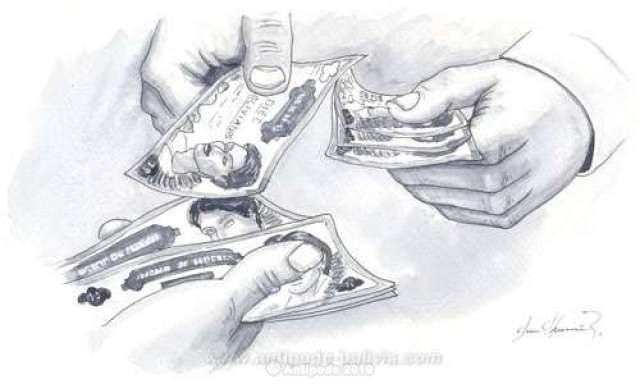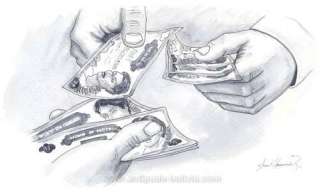

Money and Exchange Rates in Bolivia
Here are a few practical tips to help you manage your money effectively during your stay:
Local currency and payment methods
The national currency is the Boliviano, also commonly known as the peso. Make sure you have bolivianos in cash for everyday expenses, especially small amounts.
In major cities and tourist areas, international credit cards are accepted in many establishments, but it's always a good idea to carry cash in case of need.
Currency exchange
We recommend that you exchange your money at official exchange offices (known as "casas de cambio") or banks. Be aware that they accept US dollars much more readily than euros.
Beware, too, of counterfeit bills in circulation, as well as torn and glued bills, which are sometimes not accepted.
Automatic Teller Machines (ATMs)
ATMs are widely available in Bolivia's major cities and tourist areas.
Be sure to check the international withdrawal charges applied by your bank before using an ATM abroad.
Cash in hand
It's advisable to carry a certain amount of cash with you at all times, especially in remote areas where credit cards may not be accepted.
Small denominations are preferable to facilitate transactions and avoid exchange problems.
We recommend using a "Visa Internationale" or "Mastercard" credit card, as ATMs are plentiful. It is more practical to withdraw money in the national currency "Boliviano" to pay for souvenirs, and to keep a few dollars (or Euros) just in case. Our guide can advise you of the official exchange offices at any time.
Financial security
We recommend using an anti-theft pouch worn around the neck or on a belt to store passports, currency, credit cards and personal documents.
It is not necessary to travel with large amounts of cash. Use safes in accommodation to store your valuables.
Bank and contact details
Keep your bank's information, including telephone numbers for assistance in the event of lost or stolen credit or debit cards.
Be sure to notify your bank of your travel plans to Bolivia to avoid having your card blocked for unusual activities abroad.
In case of problems, there are western union and money gram offices all over the country where you can receive money very quickly from your home country.
Exchange rates:
To get an idea of the exchange rates before your departure you can check the following website: http://www.xe.com
Attention: The rates given by the site are the official rates which do not take into account the margins of the exchange house or the bank. It is very easy to change your Euros or US Dollars anywhere in the country, however if you are traveling in combination with another South American country (example: Peru), we recommend that you change the national currency of the other country before entering the country to have a more advantageous exchange rate.



